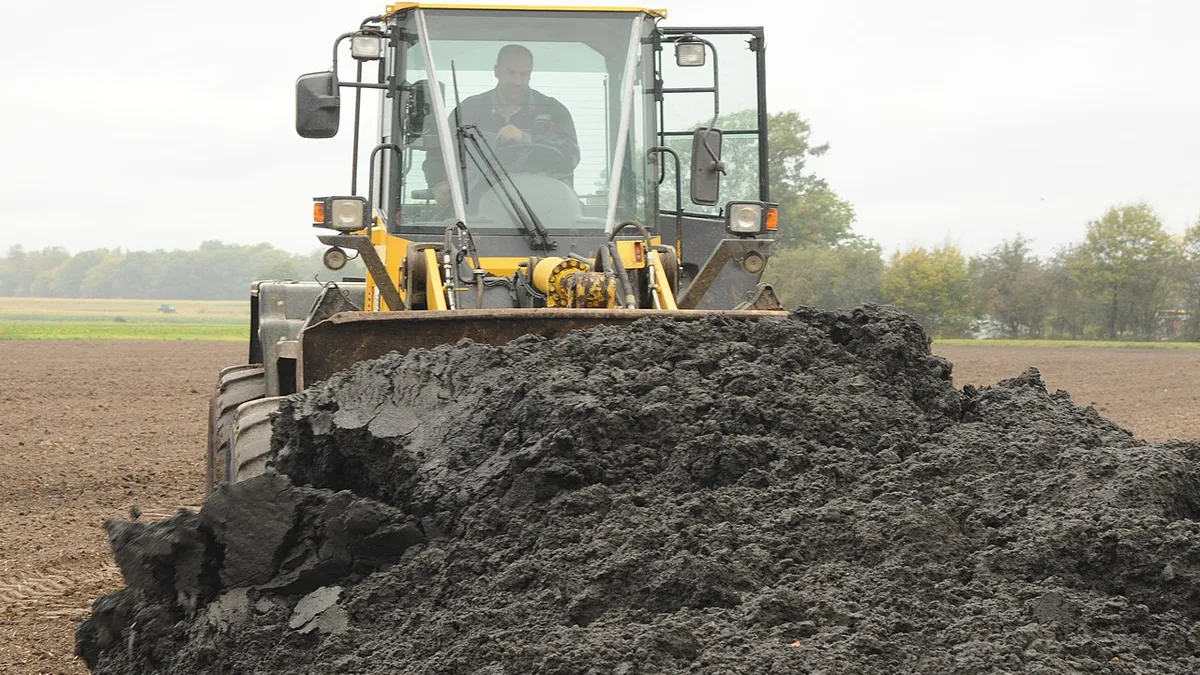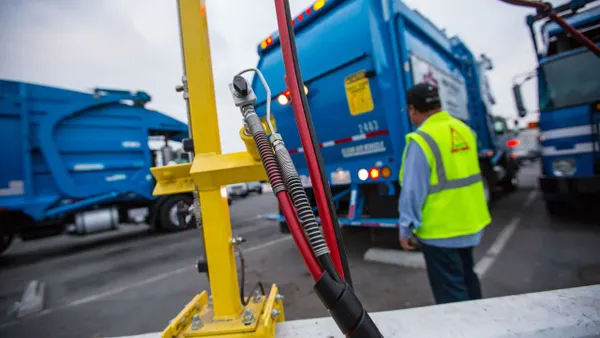Dive Brief:
- The Coalition for Sludge-Free Land, a group of roughly 30 local, regional and national environmental organizations, launched on Wednesday. The new group is pushing for an end to the practice of spreading sewage sludge on land as fertilizer.
- In recent years, a growing number of farmers have found their land is contaminated with PFAS, or per- and polyfluoroalkyl substances, due to the spreading of the sludge. The coalition argues that’s evidence the practice puts farmers and potentially consumers at risk of health impacts.
- The coalition is pushing for new practices that reduce sludge volumes and require the final material be sent to landfills. Finding a new destination for sewage sludge, known in the wastewater industry as biosolids, has been challenging in states with bans on land spreading.
Dive Insight:
The debate over what to do about PFAS contamination of biosolids has been brewing for years. The first state-level action occurred a few years ago in Maine, where some farmers discovered their land was deeply contaminated with PFAS after they or the previous owners had spread the sludge.
Maine passed a ban on land spreading in 2022. At the same time, it also halted the importation of out-of-state bulky waste, which is sometimes used to balance out aqueous wastes like biosolids in a landfill. The moves triggered a statewide crisis about what to do with the material, and eventually the legislature to reallow some bulky waste imports as the state seeks long-term solutions.
Organics recycling companies that sell fertilizer made from biosolids have argued the material is a more natural, less carbon-intensive fertilizer than synthetic alternatives. Some industry groups have also pushed back on land spreading bans, noting the practice is a cheap means of getting rid of the material while finding a beneficial use.
The U.S. EPA under President Joe Biden also released a draft risk assessment in January finding farmers who engage in the practice could be exposed to harmful levels of the chemicals, though the agency concluded PFAS was unlikely to reach consumer food products through land spreading. It also focused on two common PFAS chemicals that are being phased out of production, PFOA and PFOS. The EPA said Monday it would finish the public comment period for the assessment and determine a path forward.
The newly launched coalition includes groups like Just Zero that have argued for an end to the widespread use of PFAS. They argue land application of sewage sludge represents an unacceptable public health risk, and are cheering a growing number of state bills targeting the practice.
“It is striking and encouraging that there has been so much action,” Erica Kyzmir-McKeon, a senior attorney in the Conservation Law Foundation’s environmental justice program, said on a webinar announcing the coalition.
The group is calling for sludge to be landfilled. Laura Orlando, a senior scientist at Just Zero, said the industry should explore monofills for the sludge as well, a practice also used for incinerator and coal ash. At the wastewater treatment plant, she’s also encouraging practices that would improve dewatering and reduce sludge volumes.
“We need to get serious about sludge reduction,” Orlando said. “This is one of the great challenges.”
Orlando said land application bans should also be accompanied with other measures to rethink waste systems. Bottle bills and organic waste diversion, for instance, would preserve more landfill space for toxic materials that don’t have another use, she said.
Further upstream, the group is advocating for industries that produce contaminated wastewater to treat it for PFAS on site, rather than send it through the public treatment system. That would include landfills, whose leachate can contain PFAS and is sometimes sent through public systems.
“Right now we, the public, are subsidizing industrial waste management and we're not doing a very good job of it,” Orlando said. “We're just dumping it back on our farms. And we need to start changing that.”











